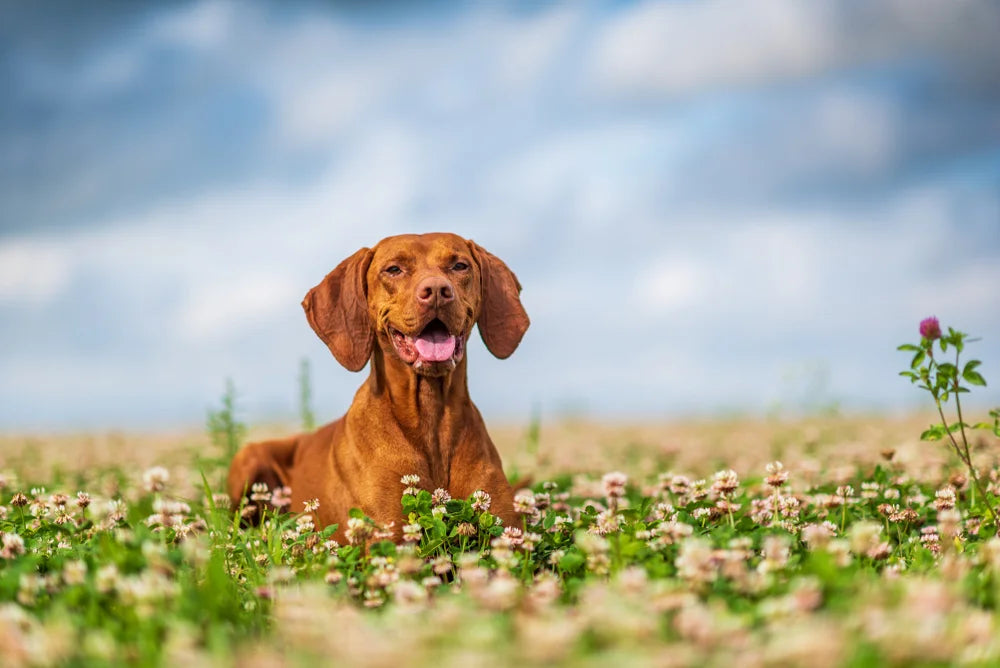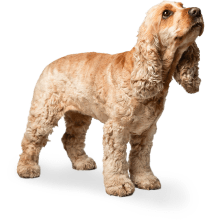

Reverse sneezing in dogs
Questions about reverse sneezing in dogs are common at the vet clinic, especially from pet owners who have never experienced it before. Let’s dive into what causes reverse sneezing in dogs and how you can help them manage it at home if it happens to them.
What is reverse sneezing in dogs?
Reverse sneezing is when a dog draws air quickly through their nose when they’re breathing in (inspiration). This quick inhale of air creates a dramatic sneezing sound and can last anywhere from a few seconds to a minute.
Reverse sneezing is the opposite of a normal sneeze, where a dog will push air quickly through their nose while breathing out (expiration). Your vet may refer to this as paroxysmal respiration, but most of us know it as reverse sneezing. The good news is that most of the time, sneezing and reverse sneezing are nothing to be concerned about
Reverse sneezing is most common in toy and small breeds, but any breed can be affected. There’s no evidence that age, sex or neutering status have any impact on whether your dog will get reverse sneezing episodes.
What causes reverse sneezing in dogs?
The exact cause of reverse sneezing isn’t fully understood or established yet. It's currently thought that reverse sneezing in dogs is linked to inflammation in the airway, which can be caused by:
- Overexcitement
- Allergies
- A long soft palate (brachycephalic breeds are more likely to have a long soft palate)
- Nasal mites
- Foreign material, such as a grass seed, stuck in the nasal passageways
Can stress cause reverse sneezing in dogs?
No, stress in dogs hasn’t been linked to an increased frequency of reverse sneezing in dogs.
Can allergies cause reverse sneezing in dogs?
Yes, an increase in allergic exposure – to things such as grasses – can increase the frequency of reverse sneezing. Some dogs have more episodes of reverse sneezing in summer, thanks to increased pollen levels. That said, not all allergies cause reverse sneezing, so talk to your vet to see if you think your dog's are related.
Can acid reflux cause reverse sneezing in dogs?
No, there’s no scientific evidence that links acid reflux in dogs as a cause of reverse sneezing in dogs. In theory, it's easy to see how acid reflux, a known irritant to the oesophagus, could be considered inflammatory enough to cause reverse sneezing. However, veterinarians feel that the true cause is likely to be higher up in the dog's airway, such as the nasopharynx (nose and mouth).
Is reverse sneezing in dogs dangerous?
The good news is reverse sneezing in dogs isn’t dangerous. While it can be alarming to watch, the episodes are short, around thirty seconds to one minute, and stop without treatment or intervention.

How do you stop reverse sneezing in dogs?
As this condition happens at home, here are a few remedies we’ve found to be effective:
- Using your voice to calm and soothe your dog through the reverse sneezing experience
- Gently rubbing the throat area to relieve inflammation
- Opening windows or using air filters for improved ventilation
- Checking the home for possible causes such as smoke, diffusers or sprays that may be triggering your dog. These can be removed once identified as a trigger
Keeping up to date with flea and worm treatment is very important for your dog's health and will help prevent nasal mites as a cause for reverse sneezing. Not all flea treatments will protect against nasal mites, so look for ingredients such as Selamectin on the label, or ask your vet for a recommended product.
When to see a vet about reverse sneezing?
If your dog is having reverse sneezing episodes less than once a week, it's considered normal, and nothing to worry about. If your dog suddenly starts reverse sneezing, has an increase in the number of times they’re reverse sneezing, or you notice any nasal discharge, you need to see a vet.
A vet will examine your dog and likely recommend diagnostic tests such as rhinoscopy. This is a small camera that can enter your dog's nasal passageway to visualise the structures in more detail, and spot causes such as foreign bodies or nasal mites.
When looking at the research, even after diagnostic testing, around 65% of dogs still continued to have episodes of reverse sneezing. This tells us it may not be possible to cure all dogs of this particular condition, so we can focus on managing the symptoms instead. Thankfully, reverse sneezing is usually mild and tends to resolve on its own, so most dogs can still live happy, healthy lives with this condition.
Research paper used to base this article on:
https://pmc.ncbi.nlm.nih.gov/articles/PMC9782110/



